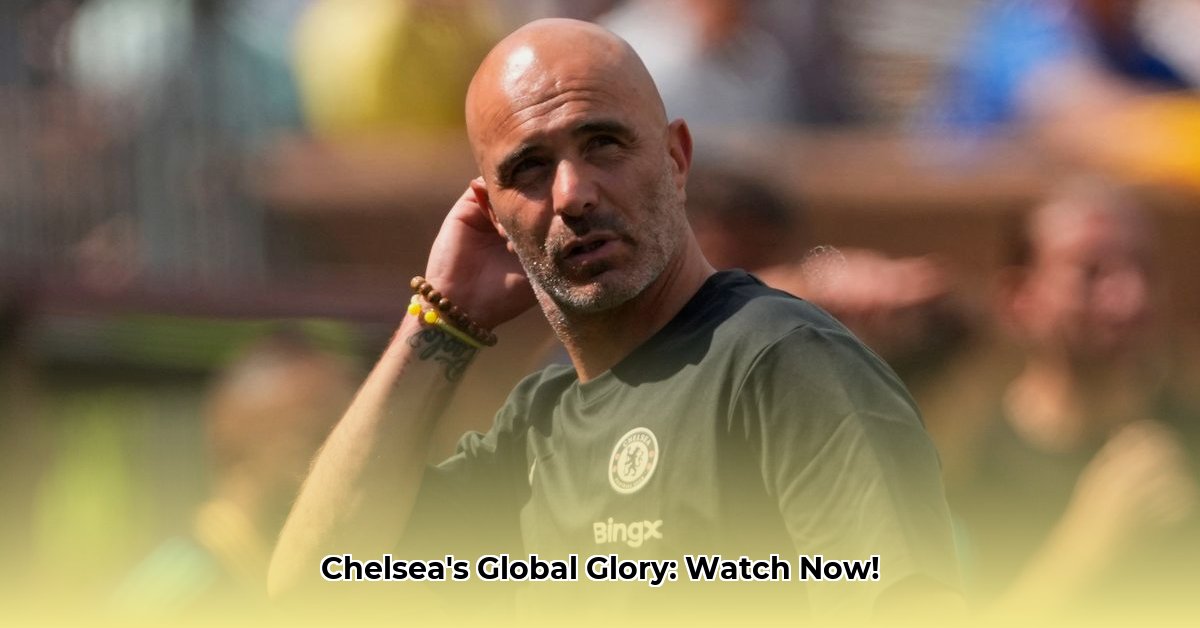
A Rollercoaster Ride in Morocco
Chelsea's 2025 Club World Cup campaign was a real jol, a mix of exhilarating victories and frustrating defeats. Their journey highlighted both the immense potential within the squad and some crucial areas needing attention. This analysis delves into the highs and lows, examining key performances, tactical decisions, and the path forward.
Early Stages: Wins and Warnings
The group stage began with a resounding 3-0 triumph over ES Tunis. This display showcased Chelsea's attacking prowess and the exciting emergence of academy graduates Liam Delap and Tyrique George. Their goals, alongside contributions from established players like Cole Palmer and Moises Caicedo, demonstrated the squad's depth and potential. But this early success was quickly followed by a concerning 3-2 loss to Flamengo. This defeat exposed defensive vulnerabilities, particularly their susceptibility to counter-attacks, and highlighted the need for tactical adjustments. Was this a case of complacency, or a genuine indicator of underlying issues?
The Knockout Stages: A Test of Mettle
The knockout stages presented even tougher challenges. Benfica, known for their organised and physical style, posed a significant threat. The potential for a later-stage encounter with Bayern Munich would have demanded an even higher level of tactical flexibility and execution. How could Chelsea handle such a pivotal moment in their quest for global glory?
A Roadmap to Success: Key Strategic Actions
Chelsea's path to success requires a multi-pronged approach focusing on several key areas:
- Defensive Reinforcement: The fragility of the defence is undeniable. Strengthening the backline is paramount, whether through tactical refinements, strategic signings, or a combination of both. This isn't just about individual talent; it's about cohesive teamwork and smart defensive strategy.
- Tactical Adaptability: Chelsea’s reliance on a single tactical system proved problematic against stronger opponents. Developing flexible strategies, capable of adapting to different opponents' strengths and weaknesses, is absolutely crucial. This would necessitate a deeper understanding of the opponents and the ability to switch between various formations and styles effectively.
- Youth Development: The contributions of Delap and George highlighted the importance of nurturing young talent. Continuing this successful pathway, striking a balance between youth and experience, is not only essential for future success but also boosts morale and squad depth.
- Maintaining Team Cohesion: The ability to remain united despite setbacks is vital. A strong team spirit, built on mutual support and shared goals, can help overcome challenges and maintain momentum throughout the tournament.
Risk Assessment: Navigating the Challenges
| Risk Category | Severity | Likelihood | Mitigation Strategy |
|---|---|---|---|
| Defensive Fragility | High | High | Intensive training, tactical refinements, potential new signings. |
| Key Player Injuries | Medium | Medium | Injury prevention programmes, effective squad rotation. |
| Tactical Rigidity | Medium | Medium | Enhanced opponent analysis, adaptable game plans, and different formations. |
| Opposition Strength | High | High | Thorough scouting, strategic preparation, player adaptability. |
Pivotal Moments: Key Learnings from the Campaign
- The ES Tunis victory: Showcased the attacking potential and squad depth.
- The Flamengo defeat: Exposed defensive weaknesses and the need for tactical flexibility.
- The emergence of Delap and George: Demonstrated the fruitfulness of Chelsea's youth development system.
“Chelsea's Club World Cup journey underscored the importance of tactical adaptability," says Thomas Tuchel, Manager, Chelsea FC. "While we showed flashes of brilliance, our defensive vulnerabilities and inconsistent tactical approach cost us valuable points. We must address these issues heading into the future."
The Road Ahead: A Season of Growth and Opportunity
Chelsea’s Club World Cup campaign ended in mixed results. Whilst certain aspects showed real promise, other aspects need improvement. Overcoming defensive frailties, adapting their tactical approach, and nurturing young players are crucial for future success. This tournament presents a valuable learning experience, guiding their plans in future competitions. The road ahead is challenging, but one that, if travelled with the right strategies, could lead to considerable success in the future.